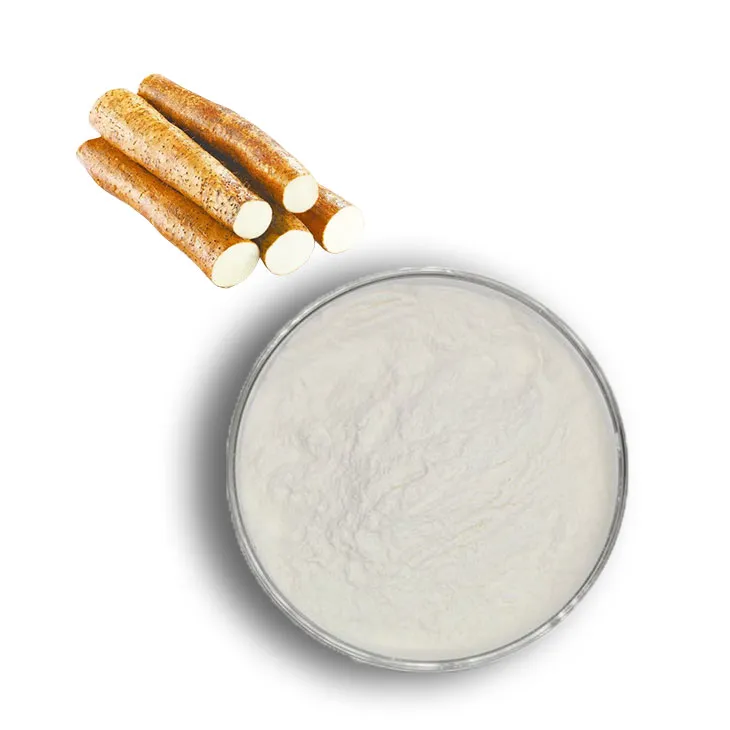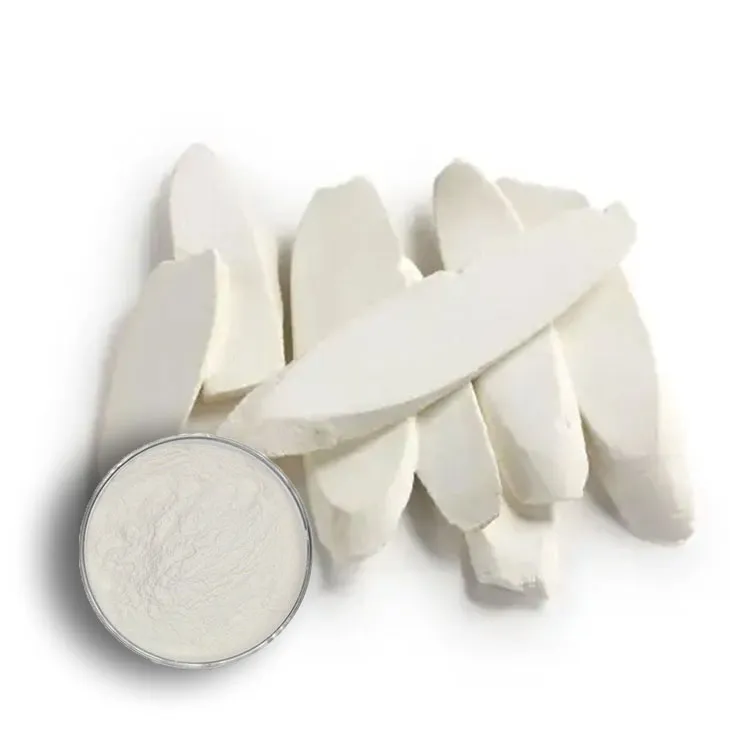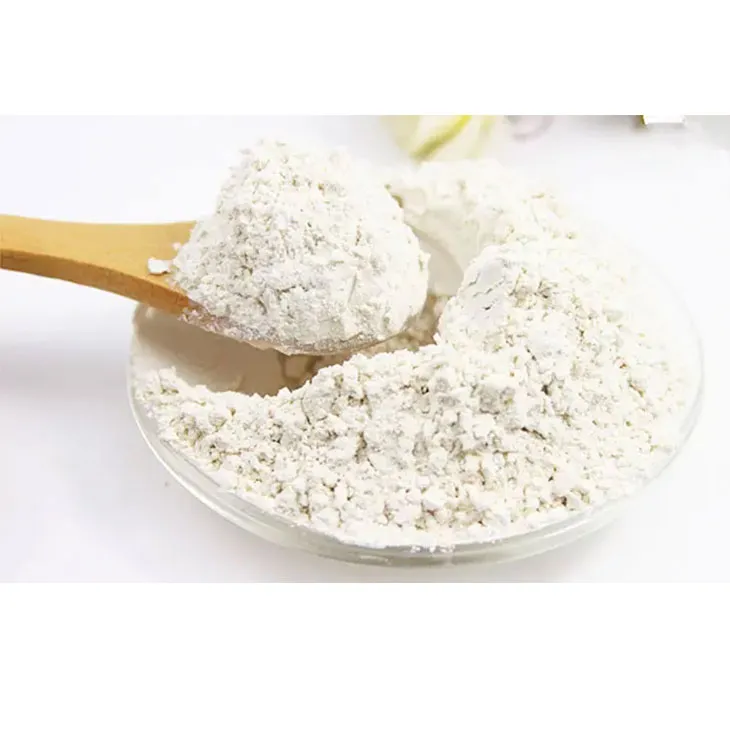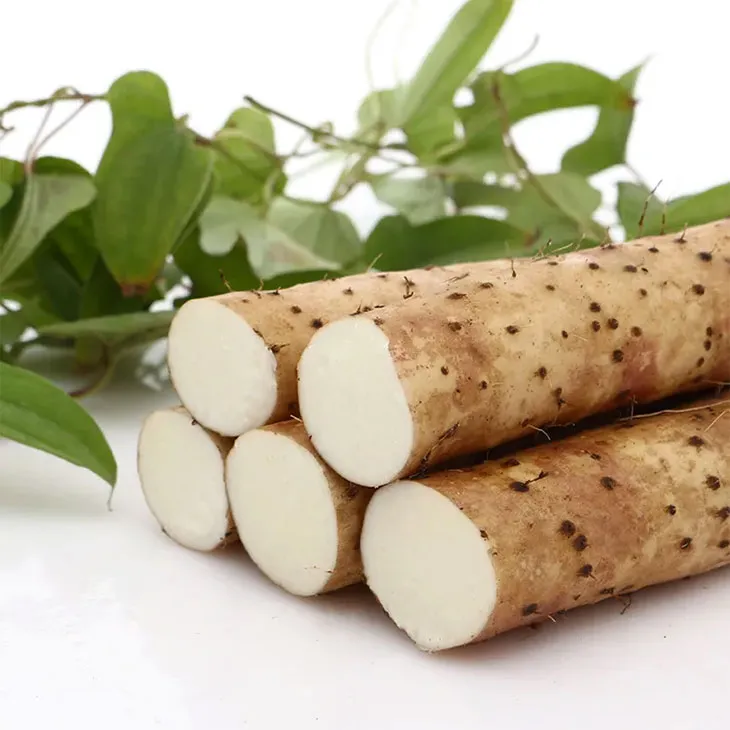- 0086-571-85302990
- sales@greenskybio.com
Yam Extract Suppliers.
2024-11-27

Introduction
Yam Extract, renowned for its distinct nutritional and medicinal properties, has given rise to a flourishing supplier industry. These suppliers play a central role in the Yam Extract business ecosystem. The demand for Yam Extract, driven by its applications in various sectors such as food, pharmaceuticals, and cosmetics, has led to the emergence of a diverse range of suppliers.

Product Consistency: A Paramount Requirement
Product consistency is of utmost importance for yam extract suppliers. Given that the extract is used in different applications, each with its own specific requirements regarding purity and concentration, suppliers must implement stringent quality assurance procedures.
Testing at Multiple Stages
Suppliers need to conduct tests at various production stages. For instance, during the initial extraction process, they must ensure that the extraction method yields the correct chemical composition. As the product progresses through purification and concentration steps, further tests are necessary to verify that it meets the pre - determined standards. This is crucial because a batch of yam extract that fails to meet the specified purity or concentration levels can have adverse effects on the end - product in which it is used, whether it is a dietary supplement or a pharmaceutical drug.

Supplier Diversity in Scale
The yam extract supplier industry exhibits significant diversity in terms of scale.
Large - scale Suppliers
Large - scale suppliers are capable of handling substantial production volumes and distribution operations. These suppliers often serve multinational corporations in the food and pharmaceutical industries. Their large - scale operations enable them to benefit from economies of scale. They can invest in advanced extraction technologies and large - scale farming operations. For example, they may have contracts with yam farmers across different regions to ensure a consistent supply of raw materials. Moreover, they have the resources to meet the high - volume demands of large companies, which require a continuous and reliable supply of yam extract for their mass - produced products.
Small - scale Suppliers
On the other hand, small - scale suppliers focus on niche markets or local customers. These suppliers offer unique advantages. They can provide more customized products and services. For example, a small - scale supplier may work with a local herbalist to develop a yam extract - based product tailored to the specific needs of a small community. Small - scale suppliers are also more likely to have a closer relationship with their customers, allowing them to respond quickly to changing demands. They may be more flexible in terms of product formulation and packaging, compared to their larger counterparts.

Sourcing of Raw Materials
The sourcing of raw materials is a critical factor for yam extract suppliers.
Selecting Yams Based on Multiple Criteria
Yams need to be carefully selected considering various factors such as species, origin, and quality. Different yam species may have varying levels of the active compounds in their extracts. For example, Dioscorea alata may have different nutritional and medicinal properties compared to Dioscorea opposita. The origin of the yams also matters. Yams grown in certain regions may be of higher quality due to favorable soil and climate conditions. Suppliers must be able to identify and source yams from the most suitable regions to ensure the quality of their extracts. Quality control at the raw material stage is essential to avoid contaminants and ensure the overall quality of the final yam extract product.
Sustainable Farming Practices
Some suppliers are increasingly involved in sustainable farming practices. This is not only beneficial for the environment but also crucial for ensuring a long - term supply of high - quality yams. Sustainable farming can involve techniques such as crop rotation, organic fertilization, and water conservation. By engaging in sustainable farming, suppliers can reduce their reliance on chemical pesticides and fertilizers, which can have a negative impact on the quality of the yams and the environment. Moreover, sustainable farming practices can help in maintaining the biodiversity of yam - growing regions, which is important for the long - term viability of the yam extract industry.
Staying Updated with Research
Yam extract suppliers must keep themselves informed about the latest research on yams and yam extracts. The field of yam research is constantly evolving, with new findings on its nutritional and medicinal properties emerging regularly. For example, recent research may uncover new bioactive compounds in yams or new applications for yam extract in the treatment of certain diseases. Suppliers need to adapt to these changes to meet market needs and regulatory requirements. They may need to adjust their extraction methods or product formulations based on the latest scientific knowledge. Additionally, staying updated with research helps suppliers to anticipate future trends in the market and position themselves accordingly.

Quality Control and Regulatory Compliance
Quality control and regulatory compliance are essential aspects of the yam extract supply business.
Quality Control Measures
Suppliers need to implement comprehensive quality control measures. This includes not only testing the final product for purity and concentration but also ensuring the quality of the raw materials, as mentioned earlier. Quality control also extends to the manufacturing process, ensuring that the extraction, purification, and concentration steps are carried out under optimal conditions. Any deviation from the standard operating procedures can lead to a sub - standard product. For example, improper storage of the yam extract can lead to degradation of its active compounds, affecting its quality and effectiveness.
Regulatory Requirements
The yam extract industry is subject to various regulatory requirements, depending on its intended use. In the pharmaceutical industry, for example, yam extract products must meet strict safety and efficacy standards set by regulatory agencies such as the Food and Drug Administration (FDA) in the United States or the European Medicines Agency (EMA) in Europe. Suppliers need to be aware of these regulations and ensure that their products comply. This may involve obtaining the necessary approvals and certifications, maintaining proper documentation of the manufacturing process, and conducting regular audits. Non - compliance can result in severe penalties and can also damage the reputation of the supplier in the market.
Marketing and Branding of Yam Extract Suppliers
Marketing and branding are important for yam extract suppliers to distinguish themselves in a competitive market.
Highlighting Product Features
Suppliers can market their yam extract products by highlighting their unique features. For example, if a supplier's yam extract has a higher concentration of a particular bioactive compound, they can emphasize this in their marketing materials. They can also promote the quality of their raw materials, such as the fact that they source yams from sustainable farms or from specific regions known for high - quality yams. By highlighting these features, suppliers can attract customers who are looking for high - quality and unique yam extract products.
Building a Reputable Brand
Building a reputable brand is crucial for long - term success. A strong brand can instill confidence in customers, both in terms of product quality and reliability. Suppliers can build their brand by consistently delivering high - quality products, providing excellent customer service, and being transparent about their manufacturing processes. For example, they can share information about their quality control measures and sustainable farming practices on their website or in their marketing materials. A good brand reputation can also help suppliers to expand their market share and enter new markets.
Conclusion
Yam extract suppliers are a diverse and important part of the industry. Their ability to ensure product consistency, manage scale differences, source high - quality raw materials, comply with regulations, and market their products effectively all contribute to the success of the yam extract business. As the demand for yam extract continues to grow, both in traditional and emerging markets, suppliers will need to adapt and innovate to stay competitive and meet the evolving needs of their customers.
FAQ:
What are the main qualities yam extract suppliers should ensure?
Yam extract suppliers should mainly ensure product consistency. They must have strict quality assurance procedures as different applications demand different purity and concentration levels. Testing products at various production stages is necessary to meet specified standards.
How do yam extract suppliers differ in scale?
There are large - scale yam extract suppliers that can manage large - volume production and distribution, usually serving multinational food and pharmaceutical corporations. Meanwhile, small - scale suppliers focus on niche markets or local customers and may offer more customized products and services.
Why is the sourcing of raw materials crucial for yam extract suppliers?
The sourcing of raw materials is crucial for yam extract suppliers because yams need to be carefully selected considering their species, origin, and quality. Some suppliers may practice sustainable farming for a long - term high - quality yam supply. Also, they need to keep up with the latest yam - related research to meet market and regulatory changes.
What challenges might small - scale yam extract suppliers face?
Small - scale yam extract suppliers might face challenges such as competing with large - scale suppliers in terms of cost and market reach. Since they focus on niche or local markets, expanding their customer base can be difficult. Also, they may struggle to invest in advanced production technologies due to limited resources.
How do yam extract suppliers adapt to regulatory requirements?
Yam extract suppliers adapt to regulatory requirements by staying updated with the latest research on yams and yam extracts. This knowledge helps them ensure that their products meet all the necessary legal and safety standards in the food and pharmaceutical industries.
Related literature
- Yam Extract: Production and Quality Control"
- "The Role of Suppliers in the Yam Extract Market"
- "Sourcing Yams for Extract Production: Best Practices"
- ▶ Hesperidin
- ▶ citrus bioflavonoids
- ▶ plant extract
- ▶ lycopene
- ▶ Diosmin
- ▶ Grape seed extract
- ▶ Sea buckthorn Juice Powder
- ▶ Beetroot powder
- ▶ Hops Extract
- ▶ Artichoke Extract
- ▶ Reishi mushroom extract
- ▶ Astaxanthin
- ▶ Green Tea Extract
- ▶ Curcumin Extract
- ▶ Horse Chestnut Extract
- ▶ Other Problems
- ▶ Boswellia Serrata Extract
- ▶ Resveratrol Extract
- ▶ Marigold Extract
- ▶ Grape Leaf Extract
- ▶ blog3
- ▶ blog4
-
The extraction process of Maca extract.
2024-11-27
-
Organic Motherwort Extract Powder Supplier.
2024-11-27
-
The Pure Vitamin K2 Most Worth Buying.
2024-11-27
-
Chinese Hawthorn Extract Powder Suppliers.
2024-11-27
-
The best Tongkat Ali extract in nature.
2024-11-27
-
Chinese Ginger Extract Powder Suppliers.
2024-11-27
-
Selenium yeast
2024-11-27
-
Tongkat Ali Extract Powder
2024-11-27
-
Purple Sweet Potato Extract
2024-11-27
-
Astaxanthin
2024-11-27
-
Cranberry Extract
2024-11-27
-
Apricot Powder
2024-11-27
-
Black Rice Extract
2024-11-27
-
Citrus bioflavonoids
2024-11-27
-
Almond Extract Powder
2024-11-27
-
Agaricus Blazei Extract
2024-11-27





















